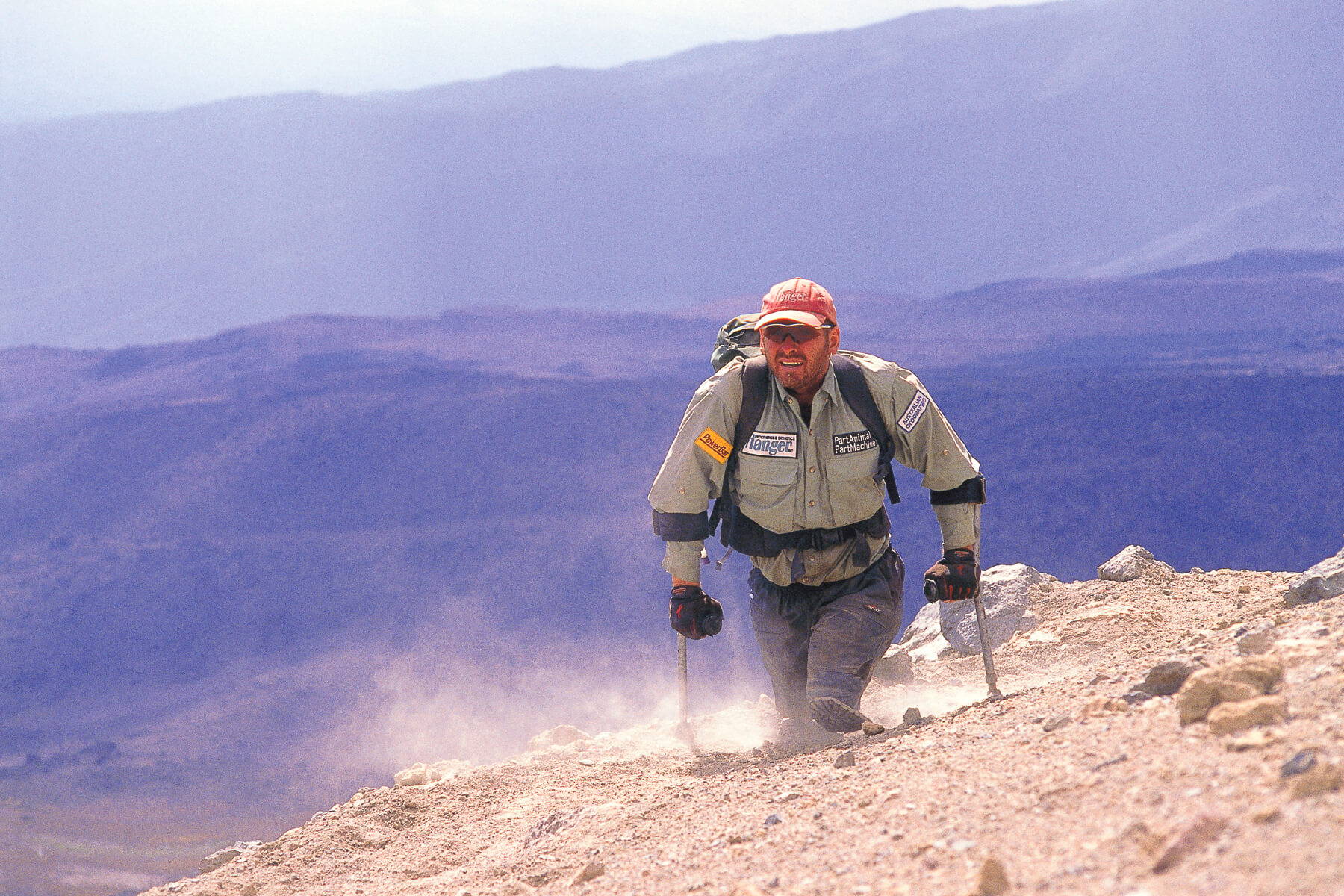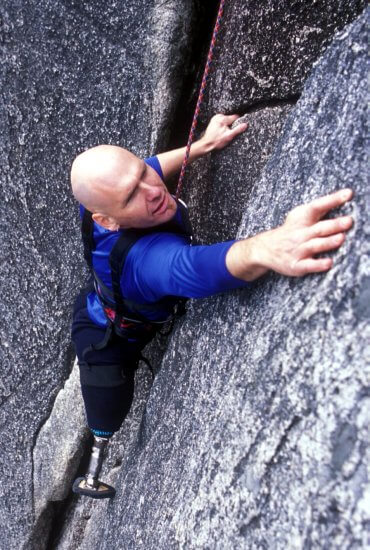From disaster to triumph: Warren Macdonald on overcoming fear and motivating others
Motivational speaker and Graduate Student Research Conference keynote shares tips for overcoming fear and public speaking
Managing fear is one of the greatest skills we can ever learn, says Warren Macdonald, the keynote speaker at the 2022 Athabasca University Graduate Student Research Conference.
Since losing his legs in a rock-climbing accident in Australia, Macdonald has used his story of perseverance to inspire others as a motivational speaker.
“People started wanting to hear my story, and over time I realized how impactful it is for us to share our stories. They remind us that we are not alone, that we are connected to something outside of ourselves,” he said.
When asked about his best advice, Macdonald emphasized that people are a lot stronger than they realize.
“Change is also a shuffling of the deck, or an opportunity to rearrange the pieces of a puzzle. It might be uncomfortable at the time, but to not change is to remain stuck,” he said.
“Change is also a shuffling of the deck, or an opportunity to rearrange the pieces of a puzzle. It might be uncomfortable at the time, but to not change is to remain stuck.”
– Warren Macdonald, Motivational speaker and Graduate Student Research Conference keynote speaker
Overcoming fear
In 1997, Macdonald was climbing on Hinchinbrook Island in Australia when a giant boulder fell on his legs. After spending 2 days waiting for help to arrive, he had to have both legs amputated at the thigh.
Macdonald didn’t let the accident—or fear—stop him from climbing, however. Just 10 months later, he successfully climbed Cradle Mountain in Tasmania.
Despite what many people think, managing fear can be learned, Macdonald explained.
“When I climbed Cradle Mount, it was about carefully considering what was known, what was unknown, what could go wrong, what could go right,” he said.
Starting a new research project or presenting for the first time can seem like really daunting tasks. But Macdonald explained that by visualizing different challenges and outcomes, we can prepare ourselves for what happens next. If it gets too overwhelming, we can use tools such as meditation, or simply taking a walk outside in nature to help regain control of our minds.
“When I climbed Cradle Mount, it was about carefully considering what was known, what was unknown, what could go wrong, what could go right”
– Warren Macdonald

Presenting virtually with ease
Macdonald has spoken on Larry King Live, The Oprah Winfrey Show, and The Hour with George Stroumboulopoulos, but says he still gets nervous when speaking to any audience.
Preparation helps mitigate those fears, he said.
“From being on top of the AV, to handwriting my notes just prior to presenting; I do whatever it takes to avoid too many surprises. Then, I meditate to ground myself and stay centred,” he said.
“From being on top of the AV, to handwriting my notes just prior to presenting; I do whatever it takes to avoid too many surprises. Then, I meditate to ground myself and stay centred.”
– Warren Macdonald

With the COVID pandemic affecting many in-person speaking engagements, Macdonald has also had to learn how to captivate a virtual audience.
“Virtual is different for sure, in some ways easier, in some ways harder than in person,” he said.
Macdonald suggests virtual presenters like those who will be speaking at this year’s Graduate Student Research Conference, should be as familiar with their technology as possible.
He also suggested virtual presenters pay close attention to their lighting and avoid direct sunlight or lighting up half of your background at the time of your presentation. Both are mistakes he’s made previously.
The final piece of advice he has when trying to captivate an audience is to keep any text being shared onscreen to a minimum.
“There is nothing more attention shattering than having a presenter read words off a screen that the audience can’t make out,” he said.
Macdonald will speak at the Graduate Student Research Conference, taking place virtually on Oct. 14 to 15, 2022. To submit an abstract or register to attend, visit the conference website.